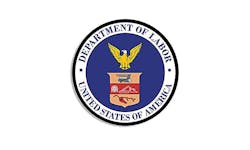WASHINGTON, DC — The US Department of Labor has announced a notice of proposed rulemaking that would restore and extend overtime protections to 3.6 million salaried workers. The proposed rule would guarantee overtime pay for most salaried workers earning less than $1,059 per week (about $55,000 per year).
“For over 80 years, a cornerstone of workers’ rights in this country is the right to a 40-hour workweek, the promise that you get to go home after 40 hours or you get higher pay for each extra hour that you spend laboring away from your loved ones,” said Acting Secretary Julie Su. “I’ve heard from workers again and again about working long hours, for no extra pay, all while earning low salaries that don’t come anywhere close to compensating them for their sacrifices.”
Today’s announcement follows months of extensive outreach to employers, workers, unions and other stakeholders, which included the department holding 27 listening sessions with more than 2,000 participants to inform the proposed rule.
“We are committed to ensuring that all workers are paid fairly for their hard work,” said Principal Deputy Wage and Hour Division Administrator Jessica Looman. “For too long, many low-paid salaried workers have been denied overtime pay, even though they often work long hours and perform much of the same work as their hourly counterparts. This proposed rule would ensure that more workers receive extra pay when they work long hours. Public input is essential as we consider the needs of today’s workforce and industry demands, and we encourage continued stakeholder input during the public comment period.”
The proposed rule would do the following:
- Restore and extend overtime protections to low-paid salaried workers. Many low-paid salaried employees work side-by-side with hourly employees, doing the same tasks and often working over 40 hours a week. But because of outdated and out-of-sync rules, these low-paid salaried workers aren’t getting paid time-and-a-half for hours worked over 40 in a week. The department’s proposed salary level would help ensure that more of these low-paid salaried workers receive overtime protections traditionally provided by the department’s rules.
- Give workers who are not exempt executive, administrative or professional employees valuable time back. By better identifying which employees are executive, administrative or professional employees who should be overtime exempt, the proposed rule will better ensure that those who are not exempt will gain more time with their families or receive additional compensation when working more than 40 hours a week.
- Prevent a future erosion of overtime protections and ensure greater predictability. The rule proposes automatically updating the salary threshold every three years to reflect current earnings data.
- Restore overtime protections for U.S. territories. From 2004 until 2019, the department’s regulations ensured that for U.S. territories where the federal minimum wage was applicable, so too was the overtime salary threshold. The department’s proposed rule would return to that practice and ensure that workers in the US territories subject to the federal minimum wage have the same overtime protections as other U.S. workers.
Opposition from ABC
Associated Builders and Contractors today issued a statement opposing the proposed rulemaking.
“ABC is disappointed that the DOL is moving forward with a proposed overtime rule since multiple industries, like construction, are still grappling with the lingering economic consequences of inflation, global supply chain disruptions, rising materials prices and workforce shortages, all of which push operational costs ever higher,” said Ben Brubeck, ABC vice president of regulatory, labor and state affairs.
Next Steps
Upon publication in the Federal Register, the notice of proposed rulemaking will be open for public comment for 60 days. The department will consider all comments received before publishing a final rule. Learn more about the proposed rule and instructions for submitting comments by visiting www.dol.gov/regulations.



